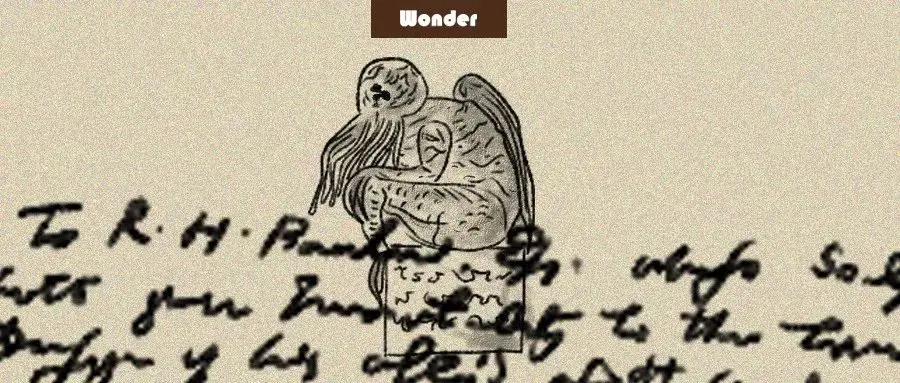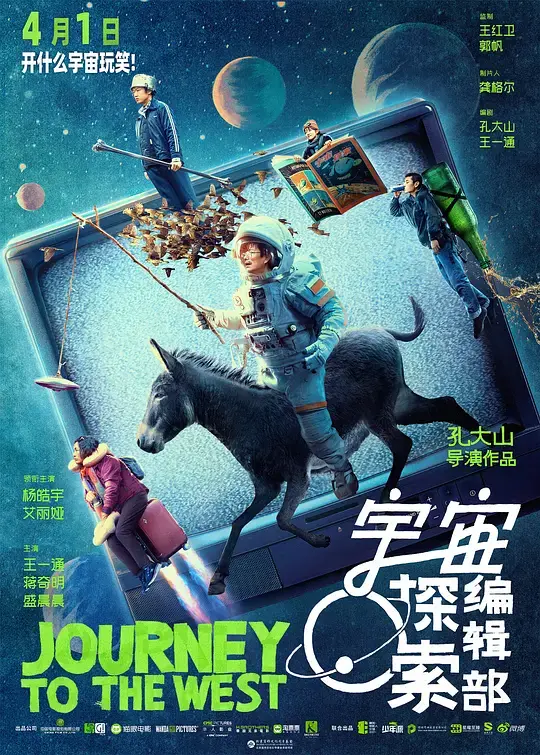Only the River Flows

On the riverside, what are the errors we see?
Is there anything greater than hardship in the world of Cthulhu? Unknowable, unseen, incomprehensible, unstoppable. When the absurd logic descends upon the flesh, the transcendent hardships of the era become like a cold and stern mountain.
Mazhe attempted to untangle the ripples of fate, believing that reason was the driving force behind the essence of these murders. But what if the murders originated from chaos and disorder themselves? Thus, the looming behemoth behind the tangle of yarn overwhelmed him, and we were horrified to discover that the error lay in our self-assumption that “life contains no errors beyond reason”; the error lay in our refusal to acknowledge that life indeed harbors a corner of “disorder and chaos”.
Why do we criticize Erjiu for not handling internal conflicts well in “In the Heat of the Sun,” but “To Live,” “Brothers,” “My Life as Emperor,” and “The Seventh Day” do not elicit the same backlash? As absurd films, I am inclined to believe that “He bian de cuo wu” surpasses “Yu zhou tan suo bian ji bu” in terms of its thematic depth. Like Erjiu’s ending, the latter also finds solace and inspiration from survivors, empathizing with them as they await the arrival of spring after enduring hardship.
Hence, people extol phrases like “the good days are still ahead” and “there is no winter that cannot be crossed,” because we are destined to overcome, and therefore, we face the future without fear. This is evidently a circular argument. But outside of this cycle, who will question the winter? Yu Hua’s works confront the source of suffering directly—a Cthulhu without an object to speak of.
“The Mistake by the River”? Where exactly does the mistake lie? On a concrete level, Ma Zhe refuses to acknowledge the randomness of the madman’s killings, thus deviating from the truth from the outset. This exposes the villagers’ reality of not being accepted by society: Ma Zhe does not believe that the madman would commit murder, so he indirectly uncovers the taboo love affairs after poetry creation, the secret cross-dressing after unjust cases, and the perverse motives behind kind adoption. The more Ma Zhe denies madness, the more madness he uncovers.
As a police officer, Ma Zhe’s pursuit of truth and adherence to logic seemed unquestionable, yet it led to greater pain and death. Ma Zhe believed in the logic of life, but the reality of this logic crushed him and his world. His clues only led from one person’s madness to another’s. A person who refused to acknowledge the rationality of madness ended up surrounded by it, and eventually succumbed to madness himself. This was the mistake he made.
From an abstract perspective, what is madness? It is suffering, akin to good people not receiving their due rewards, efforts not being reciprocated, and people seeking pain amidst happiness. It is the kind-hearted family giving birth to a disabled child. Ma Zhe refused to believe that the madman was the murderer, just as he refused to believe that his own child could become a madman. When Ma Zhe finally accepted the reality that the madman was the culprit, he had to raise his own child, who had become mad.
The river is the bond of fate.
- Xu Liang from the Director’s Cut runs by the river, the old lady dies by the river,
- the poet-teacher dies by the river,
- the child dies by the river.
They bury their secrets by the riverside. “Madman, murder case, riverside, rain curtain, life” are strung together in a strange, low-probability manner. The audience may question how such low-probability events could be coincidental; there must be the hand of a double destiny! We try to understand fate, but in the end, we are trapped by fate. So paranoia issued a warning early in the film: “We cannot understand fate, so I dress up as fate, putting on the confused and profound face of the gods.” So when we expect a plot twist in the movie, assuming the murderer is someone else, who are we really defending? It is life! It is also a kind of paranoia in believing in life. When we believe 200% in the logical rule of life, we become like Ma Zhe.
The clash of reality with primal social beliefs creates contradictions, unraveling logic, inviting the descent of Cthulhu, as the world drags people into the drifting sea, confronting life as a ferocious beast - thus, we all go mad. We begin to blur the lines between reality and the societal order we had presupposed. Rain becomes the backdrop of the stage of reality, with the truth revealed only when washed by rain; conversely, rainless nights are but the fantasies of madness for Ma Zhe.
- On rainless nights, Ma Zhe’s fantasies unfolded with four gunshots;
- On rainless nights, Ma Zhe’s imagination pieced together the full puzzle;
- On rainless nights, Ma Zhe saw his wife’s hairstyle in big waves.
In this extended process, why did Ma Zhe collapse? If a person refuses to acknowledge the disorder and chaos of suffering, then any small chaos in life will become a fuse that ignites his world - even though we all know it’s not his fault, but deeper still, the suffering of life often has no source of retaliation or accountability. We cannot hold life and suffering accountable when there is no object, so resentment can only stop with someone who stubbornly believes in rationality. The river is the link of fate, and the heavy rain is the curtain of the stage, so we made mistakes by the river, which is the arrogance of thinking that we can understand fate - we selfishly refuse to believe in a life that can drive people insane.

